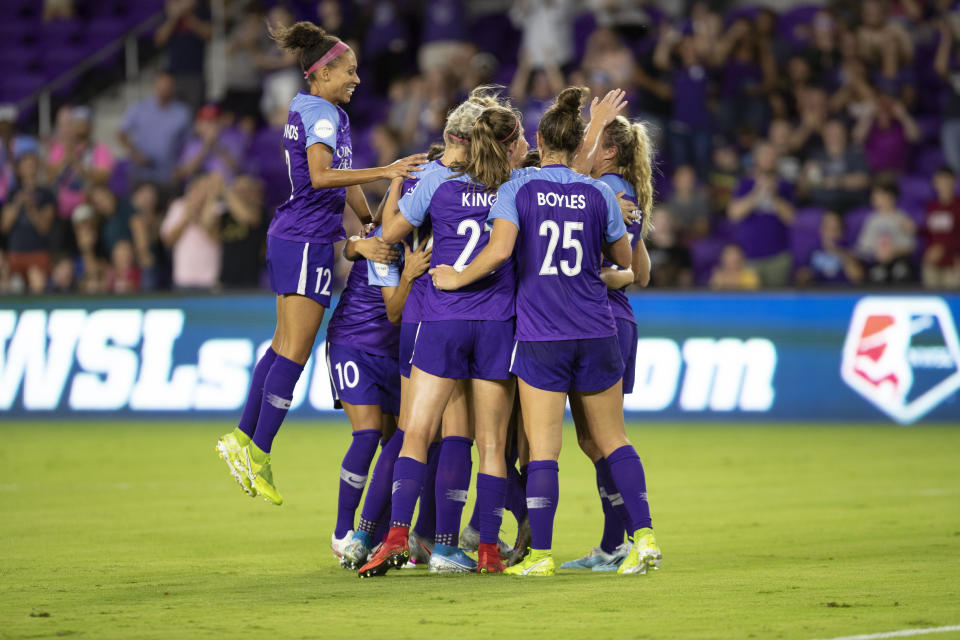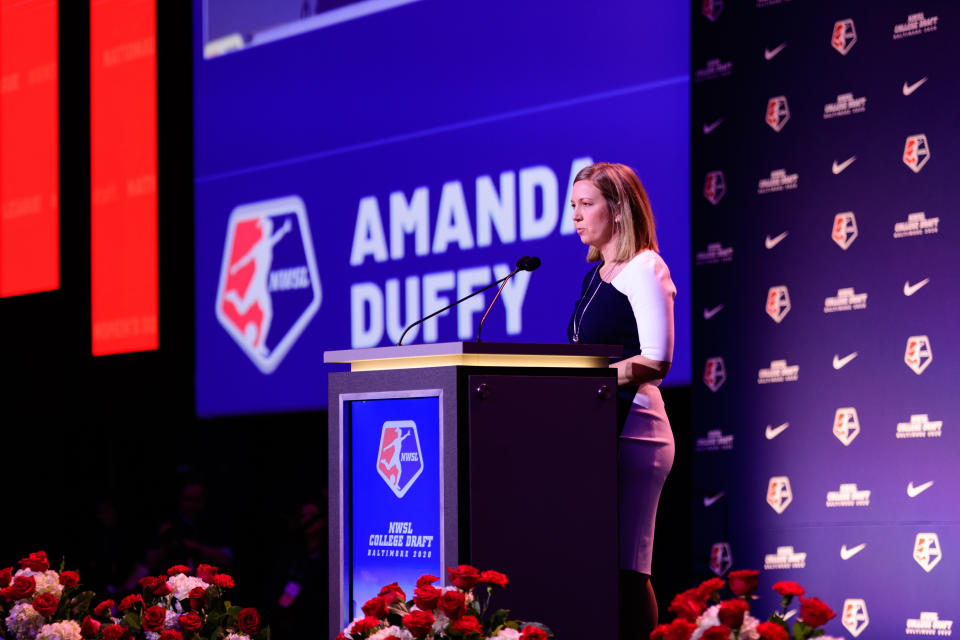What sports can learn from the Orlando Pride coronavirus outbreak — beyond 'don't go to bars'
The first major setback in the return of American team sports amid the coronavirus pandemic was the result of stupidity and selfishness.
Florida reopened bars. Players reportedly went and contracted COVID-19. The disease infiltrated training camp. It forced the Orlando Pride to withdraw from the NWSL’s Challenge Cup. Four days before kickoff, a cloud of uncertainty hangs over the tournament.
And the sports world watches — confident that it can avoid similar outbreaks, but also concerned.
In one sense, the Pride fiasco is anomalous. The solution is simple. Most human beings, one hopes, would prioritize the well-being of teammates, their league, their sport and society over nighttime revelry. Most major leagues will enforce preventative protocols more intensive than the NWSL’s. The NBA, for example, will have already built its bubble weeks before tipoff.
But within the Orlando outbreak, beyond the stupidity and selfishness, are instructive nuggets.

What we know about the Pride outbreak
Here’s what we know, or at least what’s been reported. Last Thursday, the NWSL announced that one player from one unidentified team tested positive for COVID-19. The unidentified team, per reports, was the Pride.
At that time, according to the league, Orlando began “increased testing of potentially exposed individuals,” the NWSL said in a press release. “Thus far, all resulting tests have been negative.” The following day, per The Equalizer’s Jeff Kassouf, “Orlando held an optional, limited team training session in which players who live together could train together.” But full-team training sessions ceased.
Then, sometime over the weekend, another round of tests was conducted. It returned nine more positives — five players and four staffers.

What we don’t know is how, or from whom, those nine people contracted the virus. What we can deduce beyond reasonable doubt, though, is that they were already infected last Thursday at the time of that press release. The virus, epidemiologists say, often needs at least four days to incubate inside a person before that person will test positive. Which means some of those negative tests the NWSL mentioned in its Thursday release were likely false negatives.
And false negatives are what make playing sports amid the pandemic so difficult.
The false negative problem
What the apparent timeline of the Pride outbreak demonstrates is this: When one player tests positive, a league can’t ascertain how many teammates have also been infected until days, perhaps a week after the initial positive test. It can perform further testing all it wants. But if one player tests positive on a Thursday afternoon, and that player infected a teammate on Thursday morning, the teammate likely won’t test positive until the following week. She could, however, spread the virus to others before testing positive. (This, experts say, is still murky scientific territory.)
All of which means that if a team wants to ensure no further spread after an initial positive test, it must shut down for around a week. The CDC recommends 14 days of isolation for laypeople in this scenario. Bill Schaffner, an infectious disease specialist at Vanderbilt University, says that timeline can probably be “cut in half, plus a day or two.”
But sports teams, of course, can’t do this if they hope to continue competing. MLS says that “close contacts” (i.e. teammates) of a COVID-positive individual “will also be tested,” but “can continue to train or work as long as they wear a face mask at all times when not competing, remain asymptomatic and continue to test negative.” Some epidemiologists see this as a reasonable plan if testing is performed daily. Others are alarmed by it.
“That’s very much in contrast with basic principles of contact tracing,” says Kathleen Bachynski, epidemiologist at Muhlenberg College.
And Josh Sharfstein, public health professor at Johns Hopkins: “The better, safer move is to have people self-quarantine if they’ve been exposed.”
The Pride outbreak is precisely why. The team did shut down, more or less, and still returned nine additional positive tests a few days later. (There could yet be more.) If it had held one or two additional training sessions or team outings on Friday and Saturday, even without the one player who’d initially tested positive, the other nine would have had further opportunities to infect teammates and colleagues.
Risk can be mitigated by frequent testing. Infections can be detected earlier. Intra-team spread can be curtailed sooner.
But nothing can be eliminated. Once the virus reaches a team, either its schedule or its players’ health will likely get messy. Or, in this case, both.
More from Yahoo Sports:

